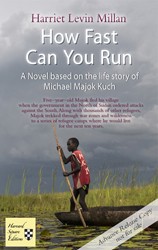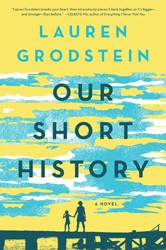As one of the most decorated writers of the last decade, Jonathan Lethem has made a career of twisting the conventions of genre— whether science fiction, noir, post-apocalyptic, or coming-of-age — into literature that follows only its own rules. He has mined the experience of a New York childhood in his best-known novels, Fortress of Solitude, Motherless Brooklyn, and Chronic City, but, until this latest work, he has tended to treat Jewishness as an incidental, background element.
Like much of Lethem’s work, Dissident Gardens feels at first as if it fits inside a genre, in this case the family saga. It records three generations who seem to lose themselves in dreams of bettering the world: the communist “red queen” Rose Zimmer, her hippy daughter, Miriam, and Miriam’s would-be songwriter son, Sergius. It seems, that is, as if it’s recording the discovery that history doesn’t necessarily have a capital “H,” that what really shapes us is family history rather than Marxist dialectics or Age of Aquarius sensibilities.
As the novel proceeds, though, that family history becomes increasingly a Jewish history, and what starts as a generational account becomes simultaneously an examination of the peculiar ways that Jewishness has inflected recent American history. Rose rejects all things Jewish from an early age — at one point dramatically yanking a mezuzah off her door and flinging it into the garden — but she tries in her later dementia to embrace a tradition she cannot quite remember. She was always, she realizes belatedly, a Jew. As Lethem’s narrator puts it, “Perhaps truly for the first time Rose felt the abjured power of her Judaism, its sway over the lumpen American mind. Before the onset of the beliefs that had split her from the Jews, Rose was already a part of an international conspiracy.”
Miriam, raised without religion, makes a different discovery with similar implications. She cannot understand why her mother insists she reject Jewishness until, after she visits her estranged father in East Germany, she discovers that her family’s religion is the rejection of religion. Miriam may never become a Jew— she certainly has little sway in shaping Sergius’s take on the world — but she comes to realize that it takes a Jew to refuse to be Jewish. She understands, that is, that she has always been “Jewish” in her sustained rebellion against Rose and in her refusal to follow the accepted patterns of middle-class America.
It’s possible, then, to read Dissident Gardens as a farewell to one type of American Judaism, an out-of-the-ghetto, make-the-world-better impulse that pushed immigrant children to run from Judaism into political movements and, “dissident gardens” that turned out ironically to be full of other Jews making similar escapes. And yet, courtesy of the powerful framing device of Sergius’s attempt to learn about the life of his vanished mother and grandmother, Lethem leaves alive the possibility that such a peculiar — and peculiarly Jewish — impulse persists. Sergius cannot entirely cut off the tradition from which he’s been estranged his entire life. Something still lives for him; he feels a “throb of Miriam’s teaching…stirring in his bloodstream.” He can’t quite name the impulse that drives him in the America of 2012, but he knows it’s connected to his Jewish heritage. As the narrator puts it, “Europeans… persistently asked if he was Jewish, and he had no answer.”
In the midst of such explorations, Lethem’s human touch remains as sharp as ever. Rose emerges as a force, someone whose every utterance carries a cleverness that forces you to laugh even before you reflect on what she’s saying. Miriam’s adventures in the early 1960s folk scene and the later counter-culture are so authentic that you can almost hear the music she inspires, and you can almost see it discarded in the cut-out bins of discount record stores. And the finest scenes of the novel — Rose’s confrontation with a teenaged sexually adventurous Miriam and Rose’s dementia love affair with television’s Archie Bunker — are extraordinary.
It’s too simple to declare Lethem the heir to the now retired Philip Roth, but Dissident Gardens packs the bombshell power of Roth’s best work. It dares us to acknowledge a strain of the American Jewish experience that still shapes us, but it refuses to lapse into nostalgia or easy lessons.
Related Content:
- Goldberg Prize for Fiction Reading List
- The Forward review of Lethem’s Chronic City
- Essays on what it means to be a Jewish writer





